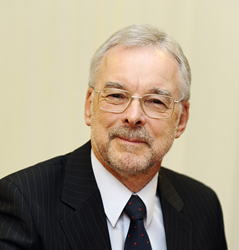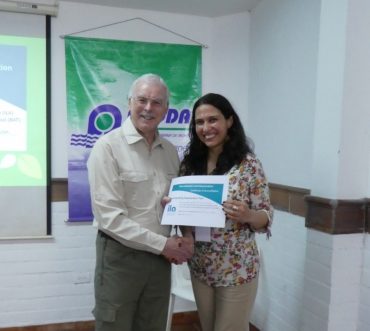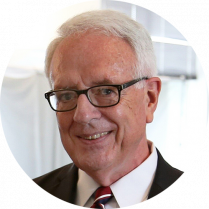 Brian Wilson
Brian WilsonWe’re excited to share a post from EEE’s European partner ILA.
CALI is a thriving city in the north-west of a South American country once renowned for its reputation for drug cartels and conflict.
Times have changed however, and when I visited Colombia in April to run a training workshop about the management of Health, Safety and the Environment (HSE) performance for lead-based product recycling, the transformation was plain to see.
One of the key components of the ILA’s global sustainability programme is the sponsorship of training workshops for regulators and company personnel in the safe handling of used lead batteries, from collection through to recycling, in a manner consistent with good practices.
On this trip I was training regulators and environmental technicians how to assess the HSE management of lead throughout its life cycle, and make informed decisions about compliance and improvement measures, ensuring at all times that good environmental and health and safety standards are applied.
Colombia is a beautiful country and it is changing and modernising rapidly. Part of this transformation includes a commitment to the responsible regulation and management of industries that form an important part of its economic development.

A tale of two countries: supporting Colombia’s green and safe industrial modernisation
Working with staff from the environmental non-governmental organisation, Pure Earth, and with support from the largest lead battery manufacturer in the world, Johnson Controls, and personnel from their Colombian operations, I was able to bring together the state Government Inspectorate and the local lead smelter management into an open interactive learning forum during the Benchmarking Assessment Tool (BAT) simulation exercises and breakout sessions.

Licensed to operate: Natalia Lopez from Colombia receives an ILA certificate and license after completing the course on environmentally safe management of lead batteries
Licensed to operate: Natalia Lopez from Colombia receives an ILA certificate and license after completing the course on environmentally safe management of lead batteries
In the USA and in Europe there are well-established closed loop recycling schemes for lead batteries, with almost 100% of used lead batteries collected and recycled in an environmentally friendly manner. The workshops sponsored by the ILA worldwide are extending the good HSE practices developed by its members and increasing compliance with the Basel Convention Technical Guidelines. Use of the assessment skills learned during the BAT workshops by regulators and adoption by industry of the ESM procedures recommended by the ILA not only raises environmental performance, but also keeps employees safe, reduces the risk of population lead exposure and provides sustainable recycling solutions for the lead industry.
There is much more to do. But as an industry, members of the ILA are committed to responsible stewardship and promoting the highest HSE standards in any lead based operations, so that the essential role of lead batteries in the everyday lives of people worldwide – from motive power, telecommunications, remote electrical supply and green energy systems – can continue to develop and grow safely and sustainably.
After a successful week in South America, it is time to move continents…… and so to Asia.


